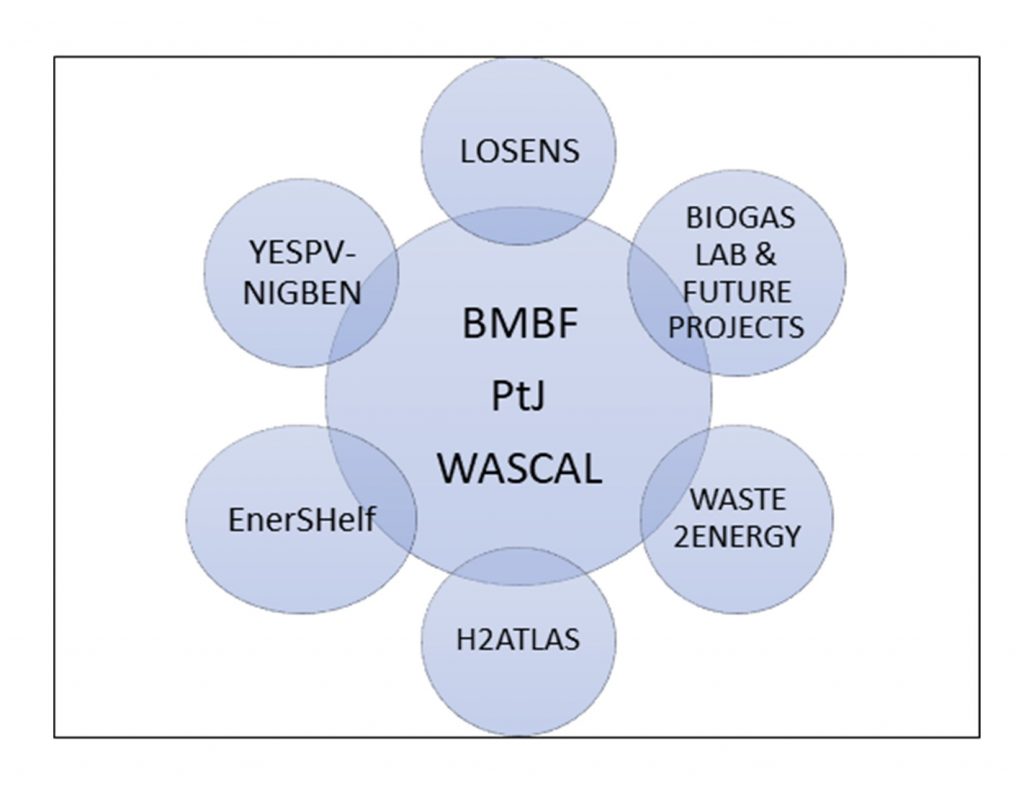Over the years, the cooperation that exists between Germany and West Africa has given rise to several initiatives such as the launch of the Go Green Go Africa Hydrogen Initiative by the Federal Ministry of Education and Research (Bundesministerium für Bildung und Forschung ,BMBF) which has received a favorable echo in the whole West African region evidenced by the Energize Africa Initiative, Waste2Energy Project, the Atlas project on Green Hydrogen among others in West Africa. On 11th of February 2020, the Federal Research Minister of BMBF, Anja Karliczek and her Nigerien counterpart, Minister of Higher Education, Research and Innovation, Yahouza Sadissou (Chairman of the WASCAL Ministerial Council) agreed, at a meeting in Berlin, to establish a hydrogen partnership and strategic measures to expand in West Africa
With the signing of the new partnership between WASCAL and BMBF and the prospects of new projects related to hydrogen coming up, it is imperative to improve efficiency and the utilization of the limited financial resources. One of the cardinal ways of managing all projects is to coordinate the projects well. The renewable energy coordination project was birthed to give an oversight of the renewable energy projects managed in West Africa and information sharing between them to WASCAL and to be involved in all the renewable energy projects sponsored by BMBF within West Africa (directly/ indirectly). Additionally, the project will hasten the rate of transferring existing know-how in German technologies with regards to green technologies within West Africa. The sub-region has young and upcoming scientists who are yet to be grounded in the knowledge of green hydrogen energy on African soil through experimentations in West African partner universities.
The coordination project makes use of the human resources made available at the WASCAL Headquarters, the Competency Centre (CoC) and the twelves partner Universities, as well as key partners in other West African Countries. The project is responsible for identifying enabling factors and facilitate the scaling up of the countries’ pilot projects across the sub-region to collate and organize all Renewable Energy related data and reports, upload them regularly in West Africa Data Infrastructure (WADI), develop Renewable Energy (RE) related services to respond to country’s needs, develop and implement a communication strategy, Conceptualize the needs of the countries and the region in partnerships with ECOWAS Centre for Renewable Energy and Energy Efficiency (ECREEE) in a comprehensive review report and strategy for West Africa including research-development and capacity building) in all the implementing countries, Financial and technical reporting to donors (BMBF, Julich etc) and to the Executive Management Team.
It will coordinate future projects related to renewable energy within West Africa as well as partner with the Southern African Science Service Centre for Climate Change and Adaptive Land Management (SASSCAL) on related projects such as PROCEED. The project will host experiments on renewable energy which will be implemented at the partner universities that will be monitored by young scientists. This will enable them to build their capacities in green energy. The strategy for the coordination project will revolve around coordination, experimentation and leveraging.
WASCAL is directly involved via the coordination project on all the renewable energy projects to be specific:
- Waste2Energy project
- H2 Atlas project.
- Biogas laboratory in Togo
- Future planned projects within West Africa
WASCAL is indirectly involved via the coordination project on these renewable energy projects.
- LOSENS 03SF0569 (Senegal).
- YESPV-NIGBEN 03SF0576(Nigeria, Benin).
- EnerSHelf 03SF0567(Ghana):
- RETO-DOSSO
- APV-MaGa
- PeopleSun
- Future planned projects within West Africa
The involvement of WASCAL within the Coordination project has been represented below.


